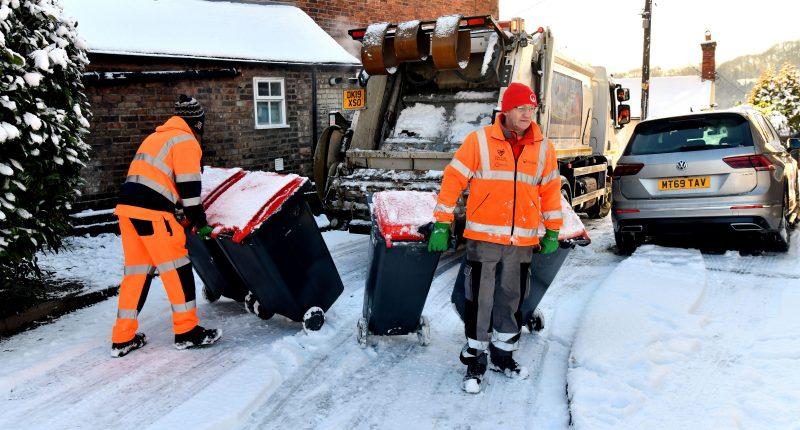WITH all the excitement of Christmas, it’s easy to forget the rules around bin collections and when exactly they will be collected.
But it’s important you do, and certain rules ignored could also end up setting you back thousands of pounds.
Christmas Day falls on Monday this year with the Boxing Day Bank Holiday the following day.
Plus, bin collection dates are also likely to change for you over New Year too.
It means you may be storing more rubbish than normal with so many holidays in a row.
You might also forget what you can and cannot throw away.
READ MORE IN MONEY
But worry not – we’ve listed below when your next pickups should be, along with how to avoid wasting an extra £400 on an easily avoided mistake.
Christmas and New Year bin collection dates
Local councils generally differ when their bin collections are because it depends when staff are working.
You should be notified already, but do get in touch with your local council about when collections times are scheduled if you’re not sure.
Some will not do weekends, public holidays or the days around a bank holiday, but you should be told about any changes your area might face.
Most read in Money
Christmas and New Year especially may have different collection dates if your usual one falls on any day between that period.
If you haven’t received a letter by post, you should be able to access all the information on your council’s website.
And don’t worry if you’re not sure which exact council you fall under – you can just use the government’s council finder on its website.
You only need to pop in your postcode.
How do I avoid the fine?
You may be charged up to £400 if you go against the rules written by your local council.
Usually, these involve items that should be going into your recycling bin rather than general waste.
Normally, labels on items will tell you how to dispose of them, like foil wrapping or glitter which can’t be put into recycling.
You may want to check the following before putting them into recycling, as they might not all be the same:
- wrapping paper
- food packaging
- Christmas cards and crackers
You should always remove sticky tape and bows before putting paper into recycling, if you’re sure it can be placed in there.
Along with checking labels, you should do the “scrunch test” for wrapping paper – if it stays in a ball afterwards, it will be recyclable.
And for food waste, the usual rules apply.
You’ll want to get rid of any uneaten leftovers in a food waste bin, or your own composter.
Depending on your local council, you could be fined up to £1,000 for not disposing of your rubbish properly.
For example, Brighton and has warned residents they could face a fine of between £400 and £1,000 for fly-tipping.
The amount each local council can fine you varies, but it’s usually in the hundreds of pounds.
Also, several sites at supermarkets and in car parks offer recycling for reasonable amounts of cans, glass, paper and plastic.
If they are full, don’t be tempted to leave your trash next to it, as you could be issued a penalty for fly-tipping.
And don’t dump your Christmas Tree on the street either – that could also land you a hefty fine.
Instead, use supermarket schemes to help you with your rubbish.
For instance, supermarkets like Tesco offer recycling for soft packaging that isn’t collected by council recycling, so you don’t have to throw it in the normal waste.
And remember, penalties don’t stop here.
Local authorities can issue fines of up to £300 for “environmental offences” like dropping litter, including food waste, cigarette butts and chewing gum.
Brits face a postcode lottery when it comes to fines for littering though.
Some councils dishing out thousands every year – and others zero.
Read more on The Sun
Merton council gave out more than 8,000 fixed penalty notices (FPNs) in 2021 – more than any other area.
Just make sure to keep up to date with your local council’s rules to make sure you never accidentally step out of line.
You can also join our new Sun Money Facebook group to share stories and tips and engage with the consumer team and other group members.









